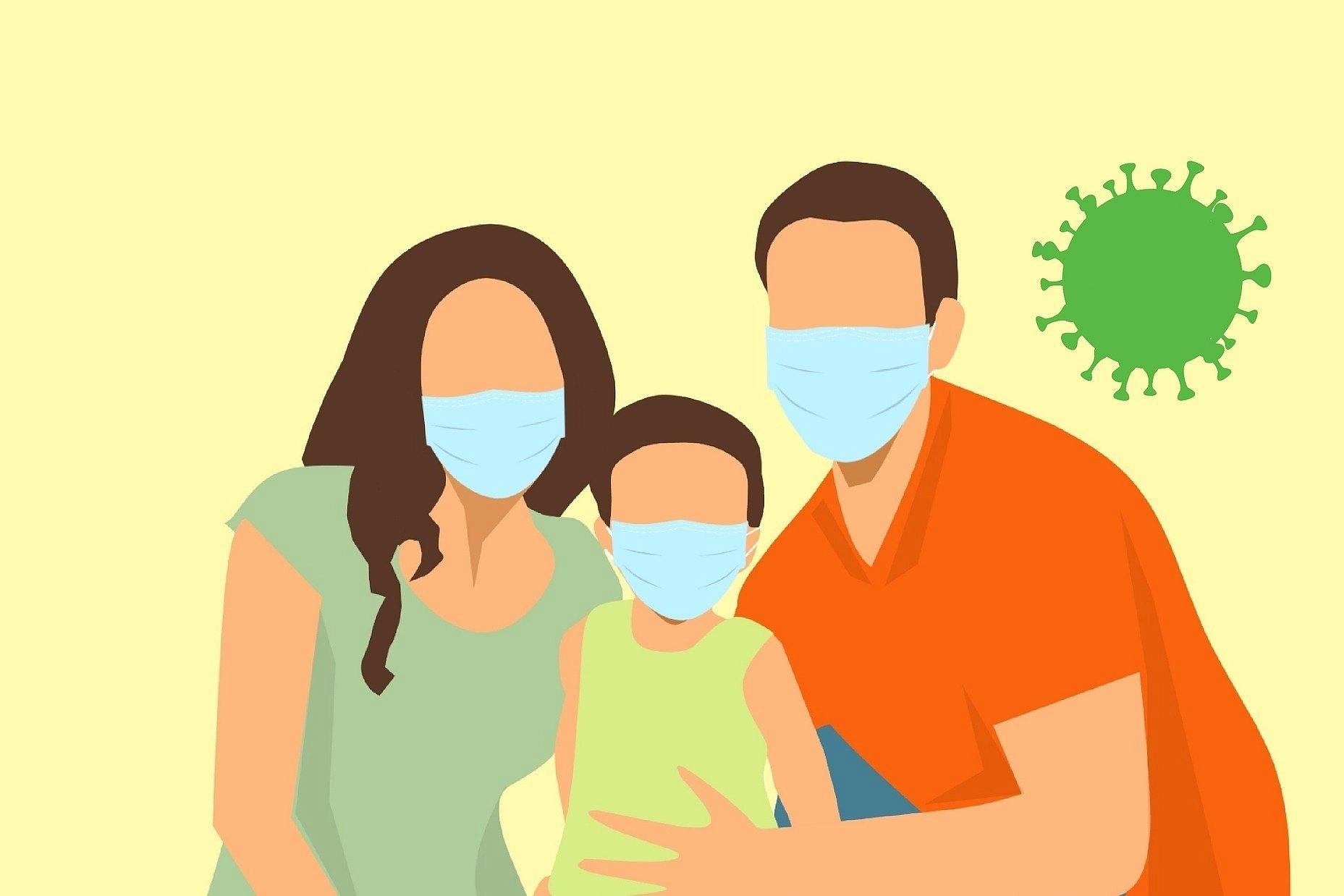News Brief
Covid-19 Third Wave May Hit In August But Would Be Less Severe, Predicts ICMR Expert
- A Covid-19 third wave is likely to hit the country in August end, but it will be less grievous than the second wave, says the head of epidemiology and infectious diseases at the ICMR, Dr Samiran Panda.

(Pixabay)
Dr Samiran Panda, the head of epidemiology and infectious diseases at the Indian Council of Medical Research (ICMR), said that there would be a nationwide Covid-19 third wave at the end of August, but it will be less lethal than the second wave. According to the healthcare expert, there could be four factors that will contribute to the third wave.
Dr Panda said if the immunity gained in the first and second wave goes down, "it could lead to a third wave". A coronavirus variant that is capable of bypassing acquired immunity, a mutated version of the virus that can quickly circulate among the population and premature relaxation of Covid-19 curbs by states—all these could also contribute to the Covid-19 third wave. When he was asked about the possibility of Delta Plus becoming the main variant behind the third wave, the expert told NDTV that Delta and Delta Plus, both have taken over the country and "I'm not expecting any more public health havoc from the Delta variant".
Dr Panda's prediction is the latest addition to the list of speculations from other experts on a potential third wave. This week, the director of the All India Institute of Medical Science (AIIMS), Dr Randeep Guleria, made similar comments. He said that waning immunity among people, the emergence of a more transmissible variant of the coronavirus and government relaxations in lockdown curbs could all lead to a possible third wave of Covid-19.
However, the SUTRA model for the Covid-19 pandemic—developed by M Agrawal (IIT Kanpur), M Kanitkar (Integrated Defence Staff) and M Vidyasagar (IIT Hyderabad)—has predicted the occurrence of a third wave between October and November this year. According to Prof Agrawal, "If there is no significantly faster spreading mutant, the third wave will be a ripple. And if there is such a mutant, the third wave will be comparable to the first one". But he also claimed that if there is an immunity-escape mutant, then the scenario would be different.
This week the Indian Medical Association (IMA) also cautioned that the third wave is "inevitable and impending" and that state governments should prohibit mass gatherings because they could turn into possible super spreader events. In the latest statement, the healthcare officials said: "It is painful to note that in this crucial time, when everyone needs to work for the mitigation of the third wave, in many parts of the country, both governments and the public are complacent and engaged in mass gatherings without following Covid protocols".
However, earlier, a study conducted by scientists from ICMR and the United Kingdom's Imperial College of London claimed that a potential third wave would unlikely be as severe as the second wave. According to the study, for a potential third wave to be as devastating, at least 30 per cent of the population that had previously been infected must completely lose their immunity or an emerging variant of the virus must have a reproductive rate of more than 4.5.
This led the authors of the study to conclude that such scenarios are implausible. They also stated that if the vaccines were rolled out in such a way that 40 per cent of the population received two doses over three months following the end of the second wave, it could reduce symptomatic incidence by around 55 per cent.
Introducing ElectionsHQ + 50 Ground Reports Project
The 2024 elections might seem easy to guess, but there are some important questions that shouldn't be missed.
Do freebies still sway voters? Do people prioritise infrastructure when voting? How will Punjab vote?
The answers to these questions provide great insights into where we, as a country, are headed in the years to come.
Swarajya is starting a project with an aim to do 50 solid ground stories and a smart commentary service on WhatsApp, a one-of-a-kind. We'd love your support during this election season.
Click below to contribute.
Latest